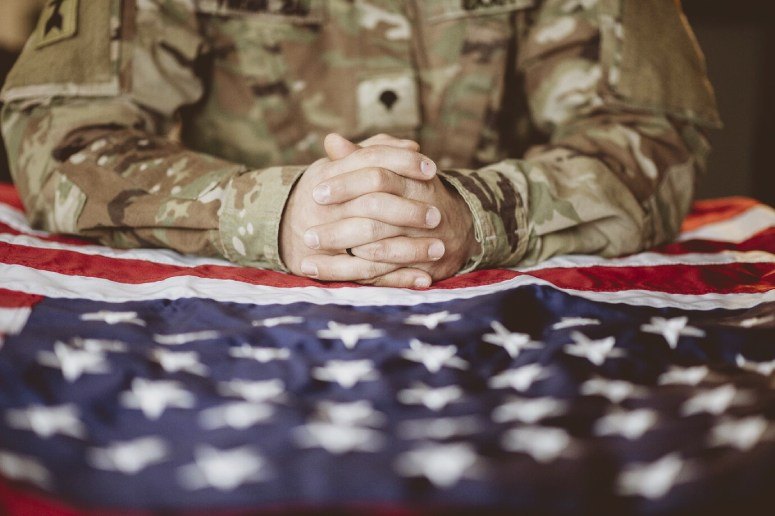Contents
Jury duty is a civic responsibility that many individuals encounter at some point in their lives. This raises important questions regarding its requirements and the selection process involved.
For those who have pondered the likelihood of being called, one might wonder, “What are the odds of getting jury duty?” Understanding the criteria affecting this likelihood, as well as knowing what to expect should one serve, is crucial.
This article aims to provide comprehensive guidance on all aspects of jury duty.
We will address the selection process and examine the benefits and potential consequences associated with serving or opting out of this obligation, ensuring that you are well-informed on the subject
What is jury duty?
Jury duty is a civic responsibility that mandates eligible citizens to serve as jurors within the legal system, thereby ensuring a fair trial by jury in compliance with both state and federal laws.
This process is a fundamental aspect of the judicial framework, wherein individuals are randomly selected from a jury pool to deliberate on cases and render a verdict.
The significance of jury service is paramount, as it exemplifies the civic duty of participating in the legal system, thereby promoting justice and fostering community engagement.
How is jury duty assigned?
Jury duty is typically assigned through a jury summons, which serves as a legal notification instructing individuals to participate in the jury selection process.
This process entails the random selection of individuals from a jury pool, where eligible citizens are chosen based on criteria established by local laws governing jury duty.
The assignment of jury duty aims to ensure fair representation of the community and fulfills the legal obligation of citizens to engage in the judicial system.
What are the odds of getting jury duty?

The probability of being summoned for jury duty can vary considerably depending on several factors, including geographic location and the size of the jury pool.
Typically, the likelihood of receiving a jury summons is influenced by the number of potential jurors available in a particular area, as well as the frequency with which cases are brought to trial.
Statistical evidence suggests that certain demographics may encounter differing probabilities of receiving a jury summons, which can be affected by local laws and the juror selection methods utilized by the court system.
How are potential jurors selected?
Potential jurors are selected through a systematic jury selection process, which typically commences with the completion of a juror qualification questionnaire designed to assess eligibility for jury duty.
This questionnaire aids in determining whether individuals meet the requisite criteria, such as age and residency requirements, to serve as jurors.
Upon qualification, individuals may be summoned to fulfill their juror duties in court.
This critical step ensures that those participating in the legal process possess the fundamental qualifications mandated by law to serve impartially.
The juror qualification questionnaire generally includes inquiries regarding an individual’s background, occupation, and any potential biases that may influence their judgment.
Following this evaluation, selected candidates are called for voir dire, during which attorneys from both sides conduct further screening to establish an impartial jury.
Understanding juror responsibilities throughout the selection process is imperative, as it lays the groundwork for ensuring a fair trial and upholding the integrity of the judicial system.
What factors increase the chances of being called for jury duty?
Several factors can increase the likelihood of being called for jury duty, including demographic variables such as age, residency, and awareness of civic responsibilities.
Individuals who actively participate in their communities or possess previous experience with jury service may also be more prone to receiving a jury summons.
Research indicates that residents of urban areas may have a greater likelihood of selection due to larger jury pools and a higher frequency of trials, which can influence the criteria for jury selection.
The degree of civic involvement, such as participation in local organizations or advocacy groups, reflects an individual’s commitment to fulfilling civic duties, thereby making them a more favorable candidate for jury service.
For example, a person who regularly volunteers for community events may demonstrate a vested interest in societal issues, resulting in a higher probability of being selected.
Additionally, past experiences with jury service, whether positive or negative, can shape individuals’ perceptions and associations with the judicial process, affecting their willingness to serve again.
This combination of factors underscores the complex interplay between civic engagement and demographic profiles in determining jury duty selection.
What factors decrease the chances of being called for jury duty?
Factors that can reduce the likelihood of being summoned for jury duty include disqualification from jury service, various exemptions, and specific local regulations governing jury participation.
Individuals may be exempted due to personal hardships, such as caregiving responsibilities or medical conditions, which may qualify as hardship exemptions.
Certain professions, including active military personnel or government officials, may also face disqualification as dictated by local laws.
These exemptions are designed not only to alleviate undue burdens on individuals but also to ensure that the jury pool is fair and representative of the community.
For example, if a potential juror is experiencing significant personal challenges, such as a recent bereavement or ongoing treatment for a serious illness, a court may determine that they are unable to fulfill their civic duty effectively.
Additionally, some jurisdictions may offer exemptions to full-time students or individuals above a certain age, acknowledging their unique life circumstances.
Understanding these criteria is essential, as it enables citizens to navigate their legal obligations while also recognizing the vital role that jury duty plays in the judicial system.
What happens if you are called for jury duty?

When an individual is summoned for jury duty, they will receive a jury duty notification that outlines the detailed instructions for attending the jury selection process.
This process requires reporting to the courthouse on the designated date, where prospective jurors will be assessed for their suitability to serve on a trial.
Attendance is mandatory, and it is essential for individuals to understand their obligations regarding jury service to facilitate a smooth judicial process.
What is the jury selection process?
The jury selection process constitutes a critical phase within the legal system, wherein jurors are selected to participate in a trial by jury based on specific qualifications.
During this process, potential jurors are subjected to questioning by the judge and attorneys, a procedure known as voir dire.
This assessment aims to evaluate their impartiality and suitability for the case in question, thereby ensuring that only qualified individuals are chosen to participate in the legal proceedings and upholding the integrity of the trial.
The significance of this process cannot be overstated, as a carefully selected jury can greatly influence the outcome of a trial.
Voir dire typically encompasses inquiries related to biases, personal experiences, and comprehension of the case topic, all designed to uncover any potential prejudices that may impact a juror’s judgment.
The judge plays a pivotal role in supervising this process, ensuring that legal standards are upheld while also protecting the rights of both the defendant and the prosecution. Additionally, juror qualifications—such as age, citizenship, and residency—are essential in forming a jury that accurately represents the community, thereby reinforcing public confidence in the legal proceedings.
What are the qualifications to serve on a jury?
To serve on a jury, individuals are required to meet specific qualifications, which commonly include age requirements, residency requirements, and the absence of disqualifying factors.
Most jurisdictions stipulate that jurors must be at least 18 years of age and residents of the state in which the trial is conducted. Additionally, individuals must not have prior criminal convictions or other disqualifications that could compromise their ability to serve impartially.
Along with age and residency, it is essential to note that jurors should possess sufficient proficiency in the English language to comprehend court proceedings effectively.
Certain professions, such as active law enforcement personnel or judges, may be exempt from jury duty due to potential conflicts of interest.
Furthermore, mental or physical disabilities that hinder individuals from fulfilling their responsibilities may also serve as disqualifying factors.
These criteria are designed to ensure that the jury is composed of individuals capable of fairly and justly evaluating the evidence presented, thereby contributing to the integrity of the judicial process.
What happens during a jury trial?
During a jury trial, jurors undertake essential responsibilities as they evaluate the evidence presented by both parties and render a verdict based on their findings.
The trial-by-jury process encompasses listening to testimonies, examining physical evidence, and engaging in deliberations with fellow jurors to ensure a fair and just outcome rooted in the facts of the case.
This collective decision-making is crucial to maintaining the integrity of the judicial system and underscores the importance of jury service.
The jury system not only give the power tos ordinary citizens to engage directly in the administration of justice, but it also highlights the significance of individual perspectives during deliberations.
Each juror contributes their unique experiences and viewpoints, facilitating a comprehensive understanding of the arguments and evidence presented.
As they attentively consider the attorneys’ narratives, they must evaluate the credibility of each witness and the relevance of the documentation, thereby enhancing their role in the trial process.
Ultimately, the jurors’ responsibilities extend beyond the mere determination of guilt or innocence – they serve to reinforce the fundamental principles of democracy, fairness, and the rule of law, rendering their participation invaluable.
What are the benefits of serving on a jury?
Serving on a jury offers numerous advantages, both for the individual juror and for society as a whole, underscoring the significance of civic duty and participation in the legal system.
Individuals acquire valuable insights into the judicial process, which enhances their understanding of the law and contributes to equitable trial outcomes.
Furthermore, jury service constitutes an essential form of community service, promoting civic engagement and reinforcing the foundations of democracy through active involvement in the legal system.
What are the consequences of avoiding jury duty?
Avoiding jury duty can result in substantial consequences, including legal penalties and repercussions for disregarding a jury summons.
It is imperative for individuals to comprehend their legal obligations related to jury service, as noncompliance may lead to fines or even charges of contempt of court.
The judicial system relies on citizens fulfilling their duty as jurors to uphold the principle of fair trials, and evading this responsibility undermines the integrity of the legal system.
What are the penalties for ignoring a jury summons?
Ignoring a jury summons can lead to a variety of penalties, underscoring the significance of the legal obligations associated with jury duty.
Individuals who fail to respond may incur fines, be mandated to complete court-ordered community service, or even face contempt of court charges, contingent upon the laws of their respective jurisdiction.
These penalties reinforce the seriousness of jury service and the civic responsibility inherent in participating in the judicial process.
In many jurisdictions, the fines for disregarding a jury summons can vary from $100 to several thousand dollars, creating a substantial financial incentive for compliance.
Courts frequently require individuals who miss their summons to appear and provide an explanation for their absence, which may result in further complications, such as additional fines or extended community service obligations.
In extreme circumstances, individuals may face arrest warrants for failing to adhere to the court’s directives.
It is crucial to understand these obligations, as neglecting jury summonses undermines the legal system and can initiate a cascade of legal issues for the individual involved.
What are the consequences of lying to get out of jury duty?
Providing false information to evade jury duty can result in serious consequences, including legal repercussions for misrepresenting one’s eligibility or circumstances that may exempt an individual from service.
The judicial system treats dishonesty related to jury duty with the utmost gravity, as it undermines the integrity of the legal process and the civic responsibilities of citizens.
Individuals found to be fabricating reasons for exemption may face penalties, including fines or other legal sanctions, which serve as a reminder of the importance of honesty in fulfilling civic obligations.
Dishonesty not only affects the individual but can also disrupt the entire judicial process, ultimately compromising the jury’s ability to function effectively.
For instance, if an individual falsely claims a health issue to escape service, they may hinder the formation of a fair and impartial jury, leading to potentially unbalanced verdicts. Such actions can result in mistrials, thereby delaying justice for all parties involved.
Engaging in deceitful practices can also cultivate a culture of distrust within the community, ultimately eroding the collective commitment to uphold the rule of law.
Therefore, maintaining integrity is essential, as it supports the fundamental principles of democracy and justice, reinforcing the notion that every citizen’s participation is invaluable.
Can you be excused from jury duty for financial hardship?

Individuals may be excused from jury duty due to financial hardship, which is recognized as a legitimate basis for seeking an exemption.
Courts typically take into account the financial implications of serving on a jury, particularly for those who may struggle to fulfill their financial obligations as a result of lost income or other economic challenges.
To request an exemption, individuals must submit appropriate documentation along with a valid reason, as specified in their jury duty notification.
This process is designed to ensure that the jury system remains equitable, acknowledging the diverse financial circumstances that potential jurors may face.
For those pursuing a financial hardship exemption, it is essential to clearly articulate their situation, often by providing pay stubs, tax documents, or affidavits that illustrate their financial instability.
Individuals are advised to specify how serving on a jury would adversely affect their ability to support themselves or their families.
By meticulously adhering to the court’s guidelines and supplying comprehensive information, individuals can enhance their likelihood of obtaining an exemption, thereby underscoring the significance of financial considerations within the jury system.
Can you be excused from jury duty for medical reasons?
Excusal from jury duty may be granted for legitimate medical reasons, which can serve as a valid basis for jury duty exemptions.
Individuals who are experiencing medical conditions that impair their ability to fulfill their duties as jurors are required to submit appropriate documentation to support their exemption request, as indicated in their jury duty notification.
Courts take medical-related requests seriously, recognizing the necessity for jurors to be both physically and mentally capable of participating in legal proceedings.
To initiate the process, individuals should prepare a formal written request that outlines their medical condition, accompanied by any necessary medical records or documentation from a healthcare provider that clearly explains the reasons why serving would present a challenge.
It is essential for the documentation to be submitted within the time frame specified in the jury duty summons, as late submissions may result in the automatic denial of the request.
Many jurisdictions offer specific forms or templates to facilitate this process, ensuring that all pertinent health considerations are effectively communicated.
Understanding the importance of juror qualifications and addressing health concerns can assist in managing expectations and contribute to a more efficient legal process.
How can you increase your chances of being excused from jury duty?
To enhance the likelihood of being excused from jury duty, individuals should familiarize themselves with the specific exemptions available and the valid reasons that may justify a request for excusal.
Factors such as financial hardship, medical conditions, and caregiving responsibilities are commonly acknowledged by courts and may be deemed legitimate grounds for exemption.
A thorough understanding of the relevant criteria, coupled with effective communication of one’s situation, can significantly improve the chances of receiving an excusal from jury duty.
What are valid reasons for requesting to be excused from jury duty?
Valid reasons for requesting an exemption from jury duty may include financial hardship, significant medical conditions, or other personal circumstances that impede an individual’s capacity to serve.
Courts typically conduct a thorough review of these requests to ascertain their legitimacy, acknowledging that specific situations can affect a person’s ability to fulfill their civic responsibilities.
Submitting clear and supportive documentation can significantly enhance the likelihood of obtaining an exemption based on these valid grounds.
Along with financial and medical concerns, several other scenarios may warrant a request for deferment, such as caregiving responsibilities for young children or elderly relatives, educational commitments, or travel obligations that are challenging to reschedule.
Each case is evaluated on its own merits, with courts assessing the validity of claims based on the documentation provided.
This highlights the importance of compiling comprehensive evidence that accurately reflects one’s circumstances, as the decision-making process relies heavily on the details presented.
A well-documented request not only demonstrates the seriousness of the circumstances but also promotes a transparent dialogue between the individual and the judicial system.
How can you request to be excused from jury duty?
Requesting an excusal from jury duty involves a formal process that is typically initiated through the jury duty notification received by the individual. This notification outlines the specific steps that must be followed to submit an effective request.
Individuals should begin by carefully reviewing the stated deadlines, as late submissions may result in the denial of the request.
Upon drafting the written request, it is essential to include any relevant documentation, such as medical notes or employer letters, that support the case.
This not only enhances the strength of the request but may also expedite the review process.
It is imperative to ensure that the submission is sent through the appropriate channels, whether via mail or an online portal, to maintain legal compliance and avoid potential penalties for failing to appear.
Scroll down the page to find our FAQ on the likelihood of being selected for jury duty.
Journey into the captivating world of probabilities and notable events. Expand your horizons and feed your curiosity with our engaging articles at WhatAreTheOddsOf.NET.



